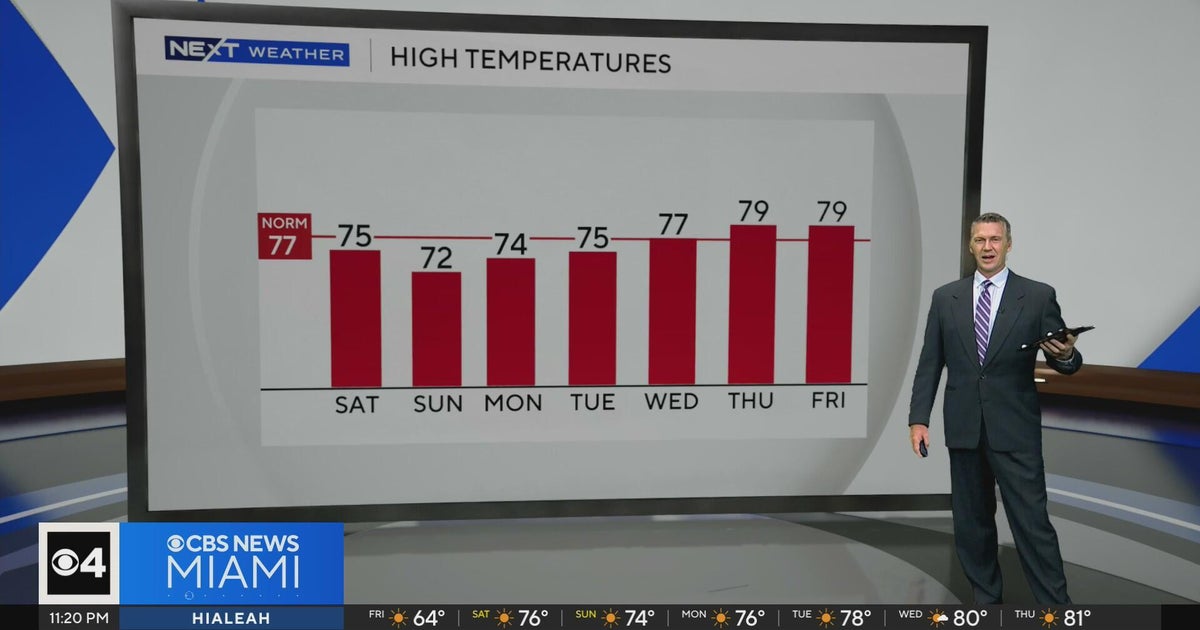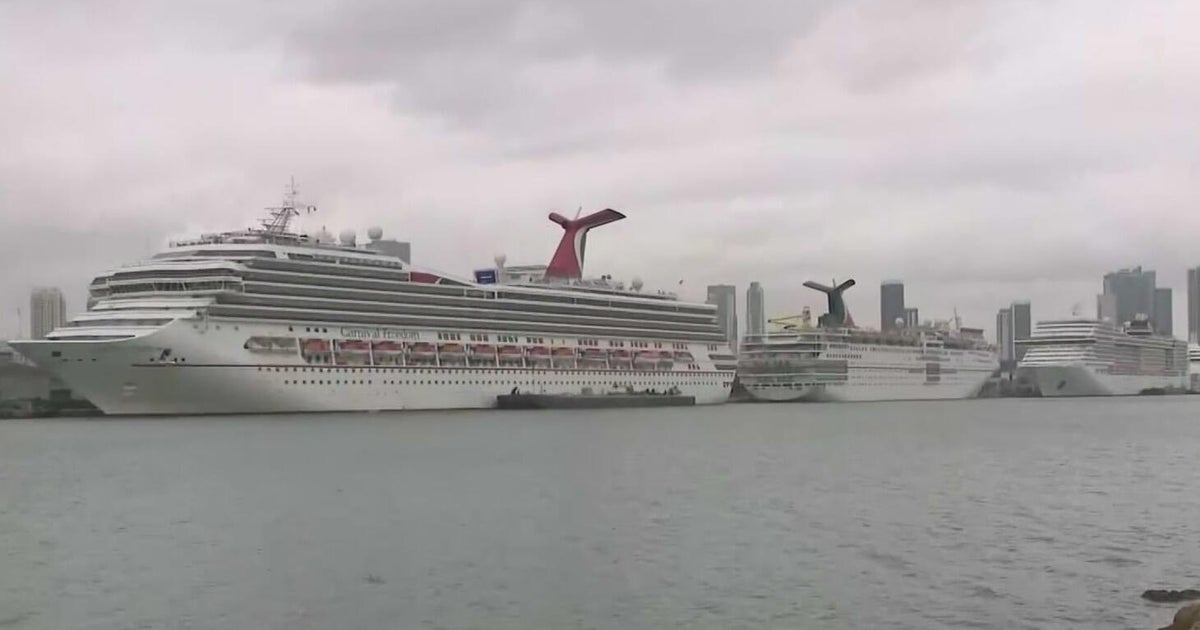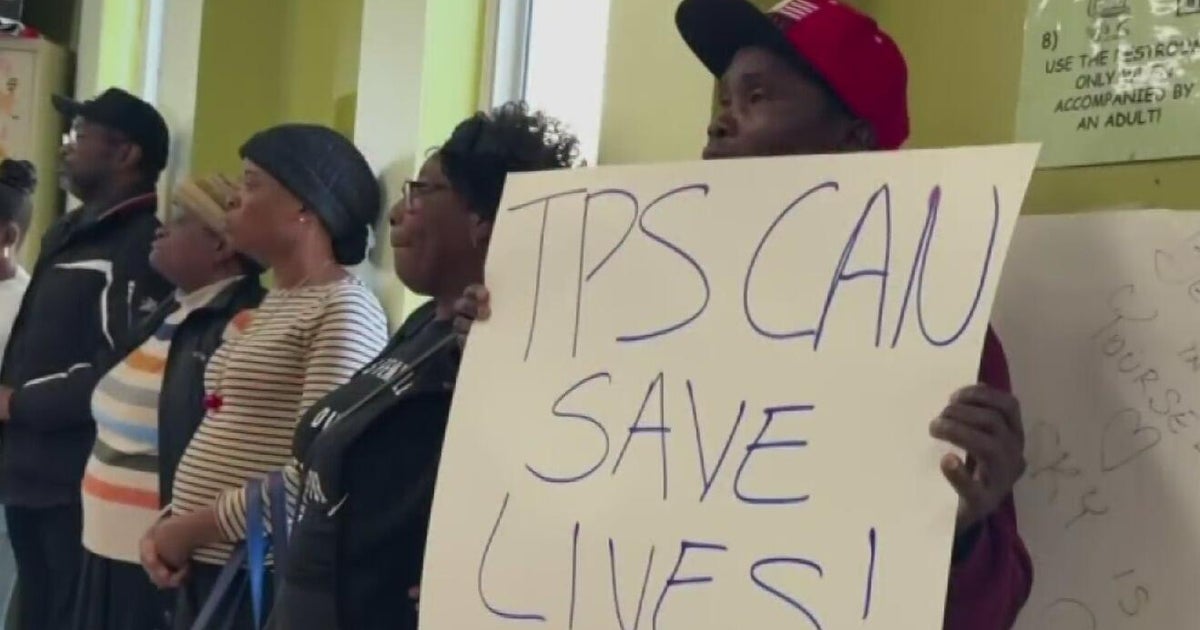TALLAHASSEE (CBSMiami/NSF) – A wide-ranging tax package approved Tuesday by the House Appropriations Committee would cut state and local revenue next fiscal year by at least $325 million, according to estimates that continue to be updated by state economists.
The proposal (HB 7071), which faced little criticism in the committee, is highlighted by sales-tax “holidays” on hurricane supplies, back-to-school items and tools and worker equipment. Also, the state would hold its second “Freedom Week,” which would provide sales-tax breaks related to such things as outdoor activities.
READ MORE: Police ID Body Pulled From Water After Dump Truck Goes Into Parkland Canal
Also Tuesday, the committee approved a change that would lift taxes on admissions to FIFA World Cup matches and qualifying matches.
The House package doesn’t include Gov. Ron DeSantis’ call for a five-month suspension of state gasoline taxes starting in July. The bill is expected to see further changes as it gets approved by the full House and then becomes part of budget negotiations with the Senate.
Rep. Colleen Burton, R-Lakeland, said the package includes a “myriad of issues” for “real life situations that Floridians face.” Rep. Ben Diamond, D-St. Petersburg, said it doesn’t include “the usual kind of Tallahassee lobbyists, big corporate tax giveaways that get worked out outside of these (committee) rooms.”
In a news release last week, House Speaker Chris Sprowls, R-Palm Harbor, called the package “the single-largest sales tax cut package in the history of the state.”
A staff analysis of the bill released Monday said state economists had not released estimates on several parts of the package, including a proposed seven-day “skilled worker tool holiday” that would be held around Labor Day.
Also, economists had not estimated the costs of a 14-day disaster-preparedness holiday in late May and early June that for the first time would include pet supplies or proposed tax breaks for what are known as Class II and Class III “short line” freight railroads.
Under the proposal, the railroads — including Florida East Coast Railway and Alabama Gulf Coast Railway — could get credits against corporate income taxes equal to 50 percent of investments in maintaining or improving tracks and based on the total miles of track.
Totals were also not available on potential savings for parts of the package that would give sales-tax breaks on Energy Star refrigerators, washers, dryers and water heaters and on impact-resistant windows, doors and garage doors.
The economists put a $100 million estimate on savings for shoppers during a proposed 14-day tax holiday in late July and early August on back-to-school items such as clothes, school supplies and personal computers that cost up to $1,500.
Also, they estimated $76 million in savings for the seven-day “Freedom Week” tax holiday around Independence Day. During that period, shoppers could avoid paying sales taxes on tickets to music events, sporting events, movies, theaters, parks, fairs and museums, purchases of items for camping, fishing and boating and purchases of surfboards, canoes, kayaks and bicycles.
READ MORE: President Biden Announces New Sanctions Against Russia
Sales tax exemptions on baby clothes and shoes would cut state and local revenues by $74.6 million, while a separate proposal to lift sales taxes for a year on baby diapers would provide $35.6 million in savings.
Not imposing sales taxes on children’s books for three months “to encourage summer reading” would provide $3.3 million in savings for shoppers.
A recurring exemption for “green hydrogen” machinery and equipment backed by Florida Power & Light would cut state revenue by $300,000 a year.
Other aspects of the House proposal include a reduction in the sales tax for new mobile homes from 6 percent to 3 percent and an exemption from the sales tax on admissions to Formula One Grand Prix races.
The package also includes a proposal — inspired by the collapse of the Champlain Towers South building in Surfside — to provide tax relief to property owners affected by a sudden and unforeseen collapse of a residential building. Another proposal would provide a break for homesteaded property made unlivable for 30 days or more by future catastrophic events.
Bob McKee, a lobbyist for the Florida Association of Counties, warned that the measure aimed at future catastrophic events could result in “a diminished tax base” at a time when there are “increased service demands because of the event.”
“We understand what is trying to be done here, which is, if there’s a catastrophic event that affects one home or three homes,” McKee said. “But our concern is if we have a truly catastrophic event, a Category 5 hurricane that hits downtown Tampa, hits Miami, we have a terrorist event in a populated area, or we have an act of war. Under those circumstances, we could have a massive impact on the property tax base, the way the property tax system works.”
House Ways & Means Chairman Bobby Payne, a Palatka Republican whose committee authored the tax package, said the state and federal governments can help local governments in such disaster situations.
“It’s just not fair to individuals, having to pay taxes on property they cannot inhabit,” McKee said. “And I’m more concerned about citizens than I am about the local government.”
The Formula One and FIFA proposals would fit into a category that already provides tax exemptions for admissions to pro and college football championship games and the Major League Baseball, Major League Soccer, National Basketball Association, or National Hockey League all-star games.
Topped annually by a back-to-school tax holiday, final tax packages in recent years have totaled $372.4 million in 2015, $129.1 million in 2016, $91.6 million in 2017, $428.9 million in 2018, $121 million in 2019, $47 million in 2020 and $196.3 million in 2021.
MORE NEWS: Black History Month: Legacy Of Miami Police Department’s Trailblazing First Black Officers
(©2022 CBS Local Media. All rights reserved. This material may not be published, broadcast, rewritten, or redistributed. The News Service of Florida’s Jim Turner contributed to this report.)



